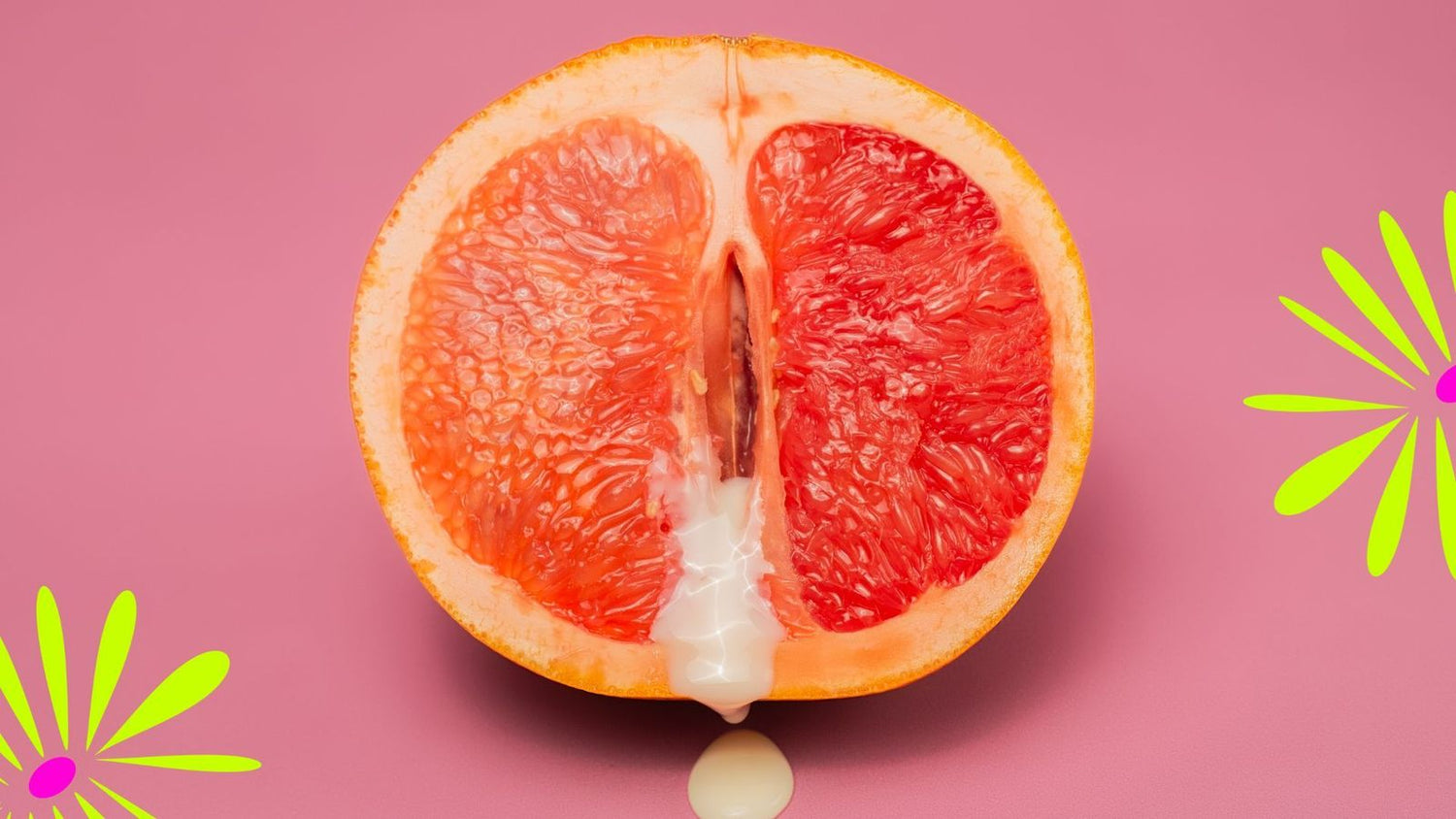Does It Smell Funny Down There? Let's Talk About Vaginal Discharges!
We need to have a chat. A really important one about something we often brush under the carpet– the smells and discharges from your vagina.
Sexuality is more than just sensation and pleasure. There are practical aspects we need to understand and care for, one of which is vaginal discharge. Now, you might think, "why are we talking about discharge when we're supposed to be discussing pleasure?". Trust us when we say that understanding your body, including its less glamorous aspects, is key to embracing and enjoying your sexuality
The Science Behind The Scent
Did you know that your vagina has a natural fragrance? It's a healthy and normal part of being a woman. It's affected by various factors such as your diet, menstrual cycle, and even your level of arousal. However, it's crucial to note that an extremely strong, foul, or fishy odor can be a sign of infection or disease.
There's a delicate balance of bacteria and yeast. The superstar of this show is the bacteria known as Lactobacilli, which produce lactic acid, keeping your vagina's pH balance slightly acidic. This acidity helps protect you from harmful bacteria and infections.
Along with the natural fragrance, vaginal discharge is also part of your body's functioning. Discharge is the vagina's self-cleaning mechanism — it's your vagina's personal maid service, if you will. Healthy vaginal discharge is usually clear or milky and may have a slight odor. Its consistency can change throughout your menstrual cycle, and you may notice more discharge after exercise or during sexual arousal.
Understanding Vaginal Discharge: The Science Behind It
Just like sweat is a natural part of how your skin functions, vaginal discharge is a normal part of how your vagina maintains its health. It's your vagina's clever way of cleaning and protecting itself. So let's get down to the nitty-gritty of the science behind it.
Vaginal discharge is a fluid produced by glands in your vagina and cervix. It carries away dead cells and bacteria, keeping the vagina clean, preventing infections, and providing lubrication.
Normal vaginal discharge often appears clear or milky and may have a slight odor. Its consistency can vary throughout your menstrual cycle, from thin and watery to thick and sticky.
However, changes in the color, consistency, volume, or smell of vaginal discharge can indicate different things. Here’s a quick breakdown of the types of vaginal discharge you may encounter:
- White, thick discharge: This is usually healthy and is particularly common at the beginning and end of your menstrual cycle.
- Clear, watery discharge: This is healthy and can occur at any time of the month. It may be especially heavy after physical activity.
- Brown or bloody discharge: This can be an early sign of menstruation, or sometimes indicate a more serious condition. If this is what happens, observe it for a few days, then talk to your doctor if it’s prolonged.
- Yellow or green discharge: This can indicate an infection, particularly if it's thick or clumpy like cottage cheese or has a foul odor.
If you're noticing a smell that's different from your usual scent, it's possible that your discharge has changed due to factors like hormonal changes, bacterial or yeast infections, sexually transmitted infections, or changes in your diet. It’s always best to seek advice from a medical professional to get clear answers about what’s going on down there.
Taking Care of Your Vaginal Health
Here are a few tips on maintaining a healthy vagina and preventing unpleasant odors:
- Embrace the natural way. Rinse with warm water during your showers, and avoid soaps or feminine hygiene products - they can disturb your vagina's bacterial balance.
- Opt for cotton underwear. It's breathable, and it keeps yeast from throwing a party downstairs.
- Ditch douching. It’s not as helpful as you might think and can actually mess with your natural bacteria.
- Stick to healthy food and stay hydrated. What goes into your body matters a lot!
- Make friends with your gynecologist. Regular visits to your doctor can help you stay ahead of any potential issues.
- Keep your self-pleasure toys clean. It's a non-negotiable for good vaginal health. Our Uno vibrator is water-proof making it easy to clean right after your 'me-time'.
Most importantly, get to know your body. If you notice a change that doesn't feel right, don't hesitate to seek professional advice. Your body is a miraculous machine, and understanding its signals is a crucial part of self-care.
Remember, your body, your rules! And nothing about your body should ever be a cause for shame or embarrassment. Embrace your body's unique quirks and nuances. Your journey of self-exploration and pleasure is a personal one– one that should leave you feeling empowered, confident, and loved.







 Add ¥1,919 to get Free Gift
Add ¥1,919 to get Free Gift



